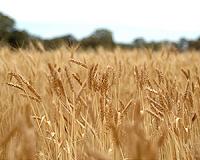 |
Brussels (UPI) Mar 30, 2011 Negotiations in the European Union on "novel foods" broke down on the issue of labeling food products from the offspring of cloned animals, officials said. Talks on the issue ended Tuesday with EU member states and the European Parliament each blaming the other, EUobserver reported. Both had agreed on the need to ban all food products from cloned animals, but failed to reach agreement on the issue of labeling food products from the offspring of cloned animals. Members of the European Parliament insisted on the need to immediately cover all products under the additional labeling requirement while member states were concerned that onerous new rules would be difficult to enforce. "Measures regarding clone offspring are absolutely critical because clones are commercially viable only for breeding, not directly for food production," Socialist MEP Gianni Pittella and far-left MEP Kartika Liotard said in a joint statement after the talks broke down. "No farmer would spend 100,000 euros ($141,000) on a cloned bull, only to turn it into hamburgers," the two MEPs leading parliament's negotiating team said. Meanwhile, the scientist behind the first mammal to be cloned from an adult cell, Dolly the sheep, said cloning for food is hard to justify. "If you were making cloned animals to make a genetic change to produce a protein that could treat human disease, that might be ethically acceptable," Ian Wilmut of Edinburgh University said. "On the other hand, if you were producing more meat, or slightly better quality meat, the advantage would not be very great."
Share This Article With Planet Earth
Related Links Farming Today - Suppliers and Technology
 Ants And Termites Boost Dryland Wheat Yields
Ants And Termites Boost Dryland Wheat YieldsCanberra, Australia (SPX) Mar 31, 2011 Ants and termites have a significant positive impact on crop yields in dryland agriculture, according to a paper published in the journal 'Nature Communications' by scientists at CSIRO and the University of Sydney. "Ants and termites perform the same ecosystem service functions in dryland agriculture that earthworms perform in cooler and wetter areas, but the potential for ants and termite ... read more |
|
| The content herein, unless otherwise known to be public domain, are Copyright 1995-2010 - SpaceDaily. AFP and UPI Wire Stories are copyright Agence France-Presse and United Press International. ESA Portal Reports are copyright European Space Agency. All NASA sourced material is public domain. Additional copyrights may apply in whole or part to other bona fide parties. Advertising does not imply endorsement,agreement or approval of any opinions, statements or information provided by SpaceDaily on any Web page published or hosted by SpaceDaily. Privacy Statement |